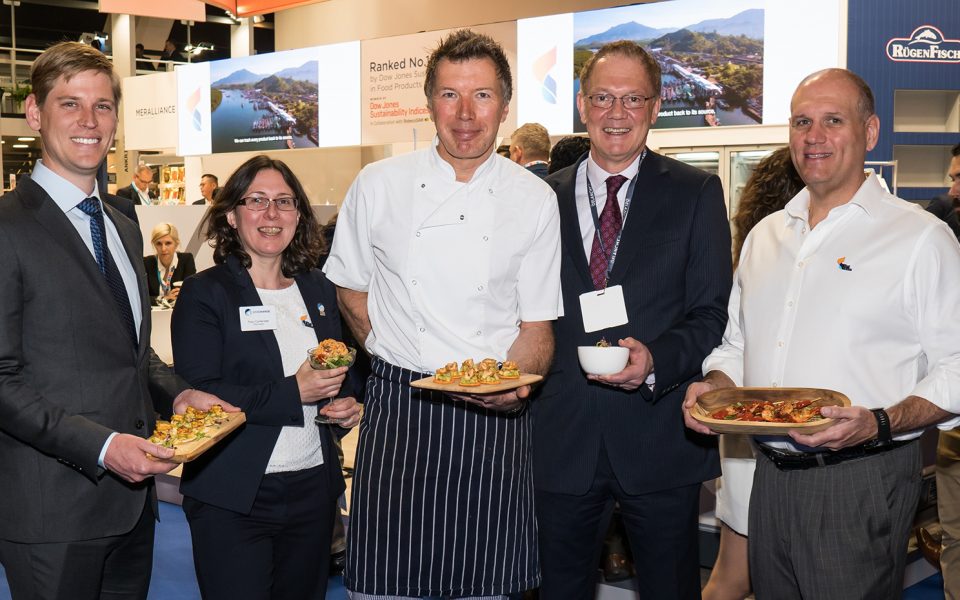Leading alternative protein producer Calysta has joined forces with seafood giant Thai Union Group PCL to offer the world its first taste of commercially farmed shrimp fed with protein produced from natural gas.
Delegates at Seafood Expo Global in Brussels will today be offered pan-fried shrimp fed Calysta’s innovative and sustainable FeedKind® protein, which contains a unique carbon signature that can help the food industry provide traceability and integrity to its supply chain.
As a sustainable alternative protein, FeedKind also enables shrimp farmers to increase their output to meet growing global demand without putting extra pressure on the planet’s resources, replacing fishmeal from wild fish specifically caught for protein in shrimp feed.
Alan Shaw, PhD, President and CEO of Calysta, said: “Thai Union is one of the world’s largest seafood producers and, like us, they are committed to improving sustainability and traceability in the shrimp farming industry – making this partnership a significant moment for the seafood sector.
“Calysta’s aim is to help create a future where the world’s growing population has guaranteed food security. By introducing a sustainable alternative protein that allows us to determine whether a shrimp was fed FeedKind protein with a simple test, FeedKind offers the industry a new level of transparency.”
The shrimp served at the Brussels expo were farmed on a feed using FeedKind protein and marine ingredients derived from Thai Union tuna byproducts.
Darian McBain, Ph.D., Global Director of Corporate Affairs and Sustainability at Thai Union, said: “Aquaculture is key to providing a sustainable form of protein for the growing global population. Ensuring that the feed inputs to aquaculture are sustainable, as well as the production methods, is vital.
“In line with our SeaChange® sustainability strategy, Thai Union is always looking for innovative ways to bring greater traceability and more sustainable products to market. By working with FeedKind, we are able to offer shrimp that have been grown using feed that has completely replaced the fish caught for fishmeal in the feed with an innovative alternative protein. The fact that the protein has a unique carbon signature that helps provide traceability and reduce seafood fraud are other significant benefits.”
Fishing activities associated with the production of fishmeal for feed have been associated with unsustainable practices. For example, fish caught are sometimes Illegal, Unregulated and Unreported (IUU), the fisheries may be unsustainably managed, or working conditions on vessels can lead to human rights abuses. By eliminating this proportion of the shrimp feed, in additon to making use of fully traceable tuna byproducts, a leap forward in sustainable shrimp production has been made.
Calysta’s FeedKind is made via a patented natural-gas fermentation platform. Made using very little land and water by fermenting natural gas, an abundant source of energy, it is a safe, nutritious, traceable and price competitive protein which has been commercially validated through extensive trials.
For more information on Calysta, see www.calysta.com or www.FeedKind.com. More information on Thai Union’s sustainability strategy SeaChange® can be found at www.seachangesustainability.org
Back to journal